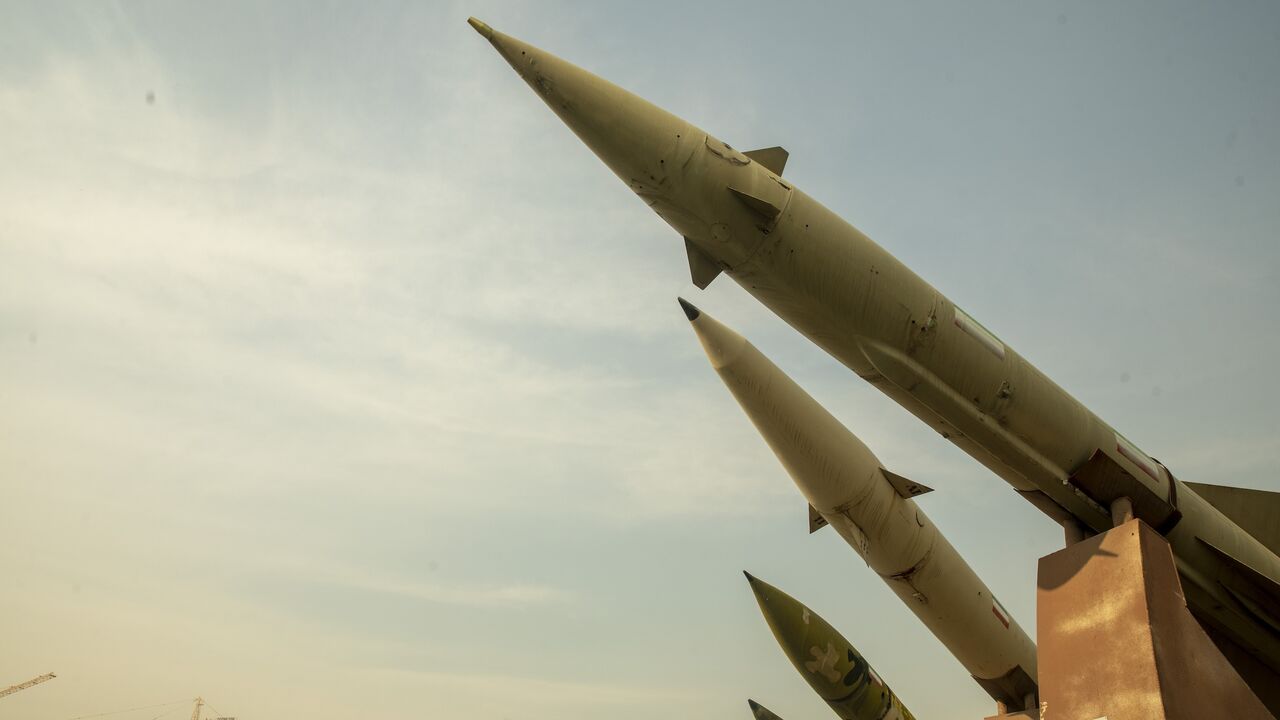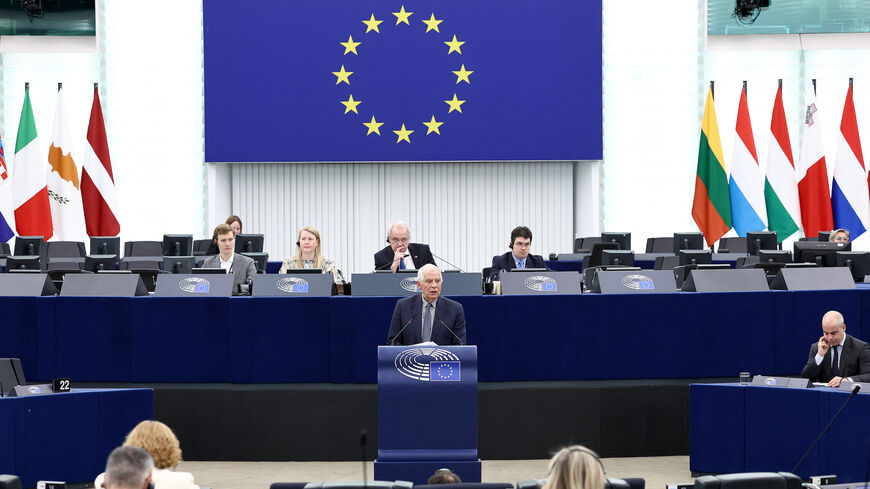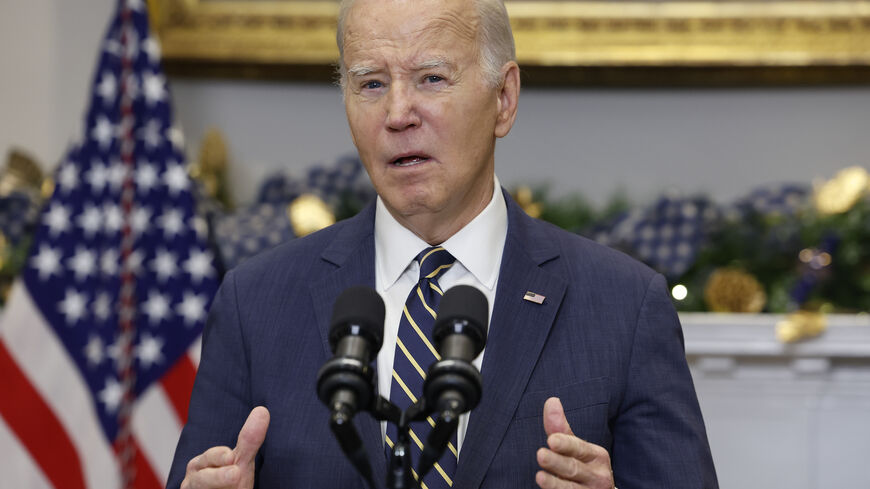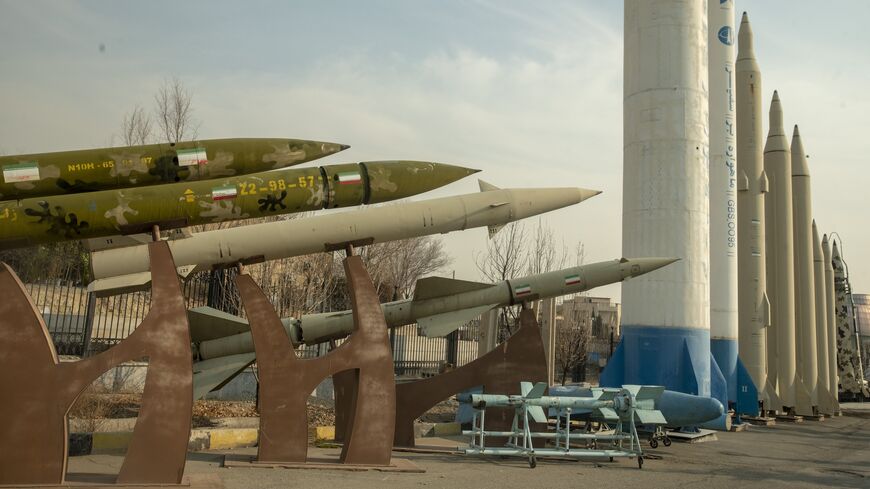Iran’s alleged missile shipment to Russia: What we know
Recent reports allege Iran sent a shipment of short-range ballistic missiles to Russia to aid in its war in Ukraine; both confirmation and denial of the reports are coming out of Iran.

Iran has reportedly sent short-range ballistic missiles to Russia as the war in Ukraine draws the two countries closer. But a White House official on Monday stopped short of confirming the news while expressing concern over the possibility.
"I cannot confirm the reports that the transfer has happened," National Security Communications Advisor John Kirby told reporters on Monday. "I would point you to what we've said in the past: that any such provision of that kind of technology would not only have a deleterious effect on the Ukrainians' ability to continue to defend themselves ... but could have equally deleterious effects on the Middle East and Iran," Kirby added.
Iran, which Kirby pointed out "already has an improving ballistic missile program," would "stand to gain from some sort of partnership with Russia to improve their capabilities in the region," he said.
What happened: The Wall Street Journal reported on Sept. 6 that European and US officials told the outlet that Iran has supplied Russia with an unspecified number of short-range ballistic missiles to aid it in its invasion of Ukraine. According to the report, a US official confirmed the arrival of the shipment.
The United States and its partners have been warning the Islamic Republic against these shipments for months now, threatening heavy sanctions if Tehran were to move forward with the deliveries.
In March, the G7 issued a statement asking that Iran not send ballistic missiles to Russia and promising a swift and coordinated response if Iran did. In July, NATO released a statement saying that any transfer of ballistic missiles "would represent a substantial escalation."
Iran’s reaction: Nasser Kanaani, the Iranian Foreign Ministry’s spokesperson, denied the reports and was quoted by IRNA on Sunday as saying, “Iran has never been part of the conflict and its continuation.” Kanaani called the allegations “baseless.”
Kanaani also added that military cooperation between Iran and Russia has existed since before the war in Ukraine and that it is “within the framework of bilateral agreements and is based on international law and norms, and has nothing to do with the Ukraine crisis.”
Yet a member of the Iranian Parliament’s National Security and Foreign Policy Committee, Ahmad Bakhshayesh Ardestani, confirmed the report to Didban Iran on Saturday, claiming the missiles were sent in exchange for soybeans and wheat. “We have to barter for our needs, including importing soybeans and wheat. Part of the barter involves sending missiles, and another part involves sending military drones to Russia,” he said.
On Monday, Kremlin spokesperson Dmitry Peskov called Iran an “important partner” to Russia and did not deny the recent reports. “We are developing our cooperation and dialogue in all possible areas, including the most sensitive areas,” Peskov stated.
Francesco Schiavi reported for Al-Monitor in August that throughout the Russia-Ukraine war, Iran has been accused of backing Russia militarily, with numerous reports of Iranian drones, munitions and artillery shells being sent to and employed by Russia. Russia has reportedly helped Iran boost its air-defense systems and radars in exchange.
Yet the latest allegations of ballistic missile shipments indicate an elevation of Iran’s support for Russia. Ballistic missiles represent a more costly investment in Russia as well as signal to the world the renewed strength of the Iranian ballistic missile program, which remains the largest in the region.
Know more: Tehran has previously been cautious about transferring ballistic missiles to Moscow, fearing repercussions from the United States and its allies, particularly while the Joint Comprehensive Plan of Action (JCPOA) was still active, which limited Iran’s ballistic missile program until Oct. 2023.
Even with the JCPOA clauses now null and void, the missile shipment still represents a risky move for Iran. The shipment signals a deepening of the Tehran-Moscow relationship even in the face of US and EU sanctions, and possibly indicates a step away from rapprochement with the United States and its allies — despite recent comments indicating openness to such rapprochement after the election of Reformist Masoud Pezeshkian to the Iranian presidency .








